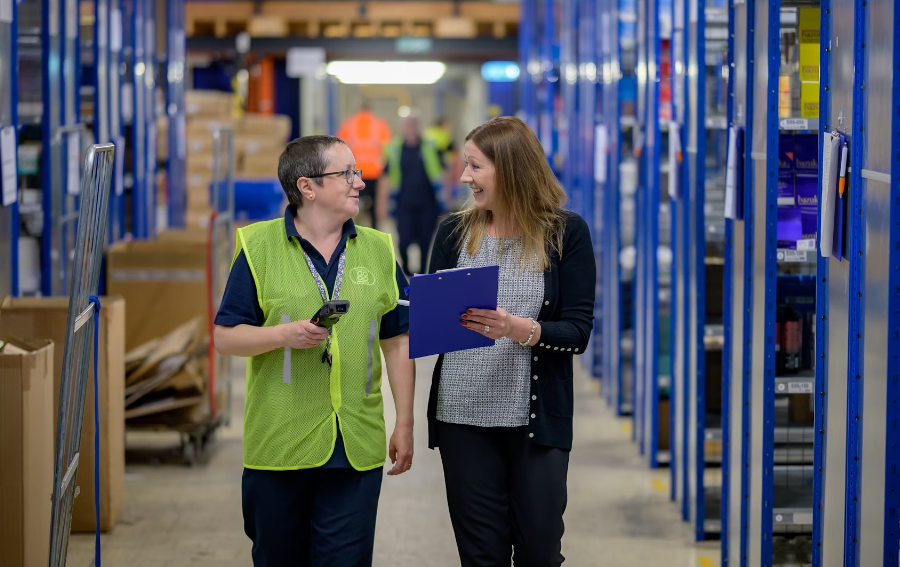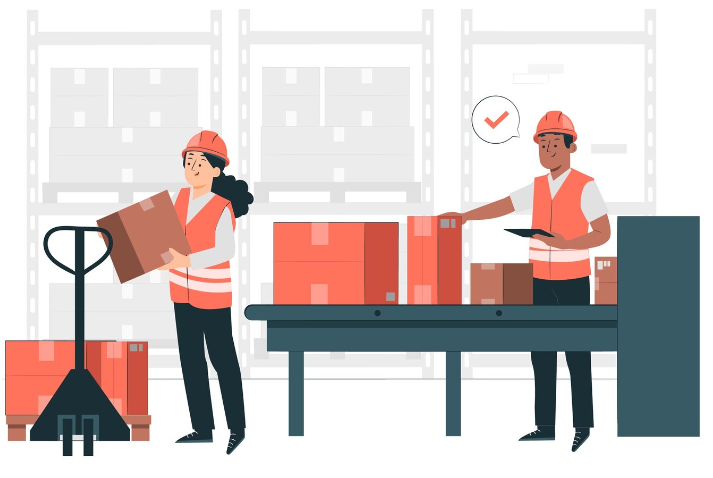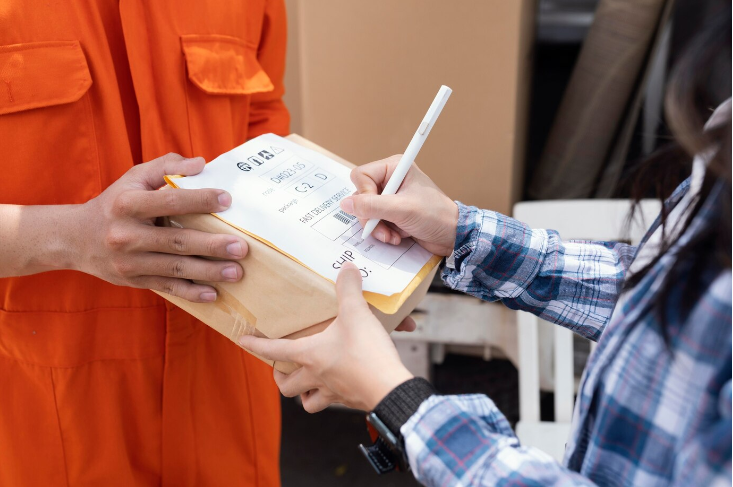Table of Contents
What Is Timely Delivery? The Importance and Factors
Time: Nov 28,2024 Author: SFC Source: www.sendfromchina.com
Every business knows the importance of fulfilling promises to customers, and timely delivery is one of the most vital. It ensures smooth operations, builds trust, and sets you apart from competitors.This blog unpacks the concept of timely delivery, its key drivers, and practical ways to overcome challenges in today’s complex supply chains.

1. What Is Timely Delivery
Timely delivery in logistics refers to ensuring that goods or products reach their intended destination within the agreed-upon timeframe. It is a critical element of supply chain operations, as it directly impacts customer satisfaction and operational efficiency. For businesses, delivering on time signifies reliability and commitment, fostering trust and long-term customer relationships.2. The Importance of Timely Delivery in International Shipping
The importance of timely delivery extends beyond customer satisfaction. It plays a crucial role in maintaining the company’s reputation and competitive edge. Delayed deliveries can lead to penalties, customer dissatisfaction, or loss of future business. On the other hand, consistent on-time performance strengthens a company’s image and enhances customer loyalty. Additionally, timely delivery ensures the smooth flow of goods within the supply chain, preventing bottlenecks and minimizing supply chain disruptions in production or sales processes.3. Key Factors That Impacts Timely Delivery

Transportation Mode and Infrastructure
The choice of transportation mode—whether air, sea, rail, or road—plays a critical role in delivery times. Air transport offers the fastest option but can be expensive, while sea freight is slower but more cost-effective for bulk shipments. The availability and condition of infrastructure, such as roads, ports, and airports, also significantly affect transit times.Route Planning and Optimization
Efficient route planning minimizes delays caused by traffic, construction, or other disruptions. Advanced logistics systems and GPS technology enable real-time route optimization, helping to avoid unexpected bottlenecks.Customs and Regulatory Compliance
For international shipments, customs clearance and compliance with trade regulations are critical. Delays often occur due to incomplete documentation, misclassified goods, or regulatory changes, especially in cross-border logistics.Inventory Management
Poor inventory management can lead to delays in picking, packing, and dispatching goods. Maintaining adequate inventory levels and efficient warehouse operations ensures that goods are ready for shipment on time.Weather Conditions
Unpredictable weather events, such as storms, floods, or extreme temperatures, can disrupt transportation schedules. Seasonal variations also impact delivery, particularly in regions prone to harsh weather during certain times of the year.Carrier Reliability

Demand Fluctuations and Peak Seasons
High demand during peak seasons, such as holidays or sales events, can strain logistics networks. Proper forecasting and capacity planning are essential to manage these fluctuations.Communication and Coordination
Effective communication between all stakeholders, including suppliers, transporters, and customers, is essential for avoiding misunderstandings and delays. Misaligned expectations or lack of updates can result in disruptions.Unexpected Disruptions
Unforeseen events, such as strikes, accidents, or geopolitical issues, can significantly impact delivery schedules. Having contingency plans in place helps mitigate these risks.4. Strategies to Ensure Timely Delivery

Effective Route Optimization
- Use advanced route optimization software to plan efficient delivery paths, minimizing delays caused by traffic congestion, road closures, or detours.- Leverage real-time GPS tracking to monitor shipments and adjust routes proactively in response to unforeseen issues.
Reliable Transportation Partners
- Partner with trustworthy carriers and freight forwarders known for consistent on-time performance.- Regularly evaluate and monitor the performance of logistics partners and renegotiate contracts based on their reliability.
Efficient Inventory Management
- Maintain accurate inventory records to ensure goods are available for dispatch as needed.- Use just-in-time (JIT) inventory systems to balance stock levels without delaying shipments.
Accurate Forecasting and Demand Planning
- Analyze historical data and market trends to predict demand spikes, particularly during peak seasons.- Plan resources, including labor and transportation capacity, to handle increased volumes.
Streamlined Customs and Regulatory Processes
- Stay updated on international trade regulations and ensure compliance with customs requirements to avoid delays in cross-border shipments.- Pre-clear shipments where possible and prepare all necessary documentation in advance.
Real-Time Monitoring and Communication
- Provide customers with real-time tracking updates and proactive communication about potential delays.- Set up centralized control towers to monitor shipments and address disruptions swiftly.
5. What Are the Challenges in Maintaining Timely Delivery

Unpredictable Weather Conditions
Extreme weather events, such as storms, floods, or heavy snowfall, can delay transportation by grounding flights, closing roads, or slowing down port operations. Seasonal fluctuations further complicate logistics planning in regions prone to harsh climates.Traffic Congestion and Infrastructure Limitations
Inadequate infrastructure or road congestion in urban areas can cause significant delays. Poorly maintained roads, outdated port facilities, and limited transportation networks exacerbate the issue, especially in developing regions.Supply Chain Disruptions
Unexpected events such as strikes, natural disasters, or geopolitical tensions can halt operations and delay deliveries. For instance, port closures or customs strikes can disrupt cross-border shipments.Inefficient Inventory Management
Stock shortages or delays in replenishment due to poor inventory planning can lead to missed dispatch schedules. Warehouses with outdated processes or technology may also struggle to meet delivery timelines.Regulatory and Customs Delays
Cross-border shipments are often delayed by customs clearance processes, especially if there are discrepancies in documentation or a lack of compliance with trade regulations. Regulatory changes can also introduce unexpected delays.Rising Costs and Capacity Constraints
Fluctuations in fuel prices, labor shortages, or limited availability of transportation assets (such as trucks, ships, or planes) can lead to delays. Peak seasons often amplify these challenges, as capacity becomes stretched.Demand Fluctuations and Seasonal Peaks
Sudden increases in demand, such as during holiday seasons or promotional sales, can overwhelm logistics systems, leading to delayed shipments. Insufficient forecasting further complicates this issue.Last-Mile Delivery Complexities
Challenges in the last-mile delivery segment, such as incorrect addresses, narrow delivery time windows, or failed delivery attempts, can delay the final leg of the shipment.Lack of Contingency Planning
Inadequate preparation for disruptions or reliance on single-source suppliers/carriers increases vulnerability to delays. Without backup plans, companies struggle to recover from unexpected setbacks.Workforce Shortages
The logistics industry often faces labor shortages, especially for skilled roles like truck drivers or warehouse personnel. It can lead to delays in handling, transportation, and overall delivery timelines.6. How Timely Delivery Impacts Customer Satisfaction

Builds Trust and Reliability
Timely delivery assures customers that they can depend on a company to fulfill its commitments. When goods arrive as promised, it creates a sense of reliability, encouraging repeat business and fostering loyalty. Conversely, late deliveries erode trust and may drive customers to competitors.Enhances Customer Experience
Prompt delivery ensures that customers receive their products when they need them, contributing to a positive overall experience. It is particularly critical in industries where time-sensitive goods are involved, such as perishables, pharmaceuticals, or event-related items.Supports Operational Continuity
For B2B customers, timely delivery ensures uninterrupted operations. Delays can lead to production halts, stockouts, or missed sales opportunities, which can damage the relationship between the supplier and the client. Meeting delivery schedules demonstrates professionalism and commitment.Reduces Complaints and Returns
Late deliveries often result in customer dissatisfaction, leading to complaints, cancellations, or even returns. By ensuring on-time delivery, businesses minimize these issues, reducing the costs and effort associated with resolving disputes.Reinforces Brand Reputation
Consistent on-time delivery enhances a company’s reputation in the marketplace. Positive customer experiences lead to favorable reviews, word-of-mouth recommendations, and increased credibility, which are critical for attracting new clients.Aligns with Customer Expectations
Modern customers often expect fast and reliable delivery, particularly with the rise of e-commerce platforms offering same-day or next-day shipping. Meeting these expectations positions a business as competitive and customer-centric.Increases Customer Retention
Satisfied customers are more likely to remain loyal and choose the same service provider for future needs. Timely delivery plays a significant role in retention, as customers prioritize companies that meet or exceed their expectations.Reduces Stress and Anxiety for Customers
Timely delivery alleviates customer concerns about whether their orders will arrive on time, especially for time-critical shipments. A predictable and reliable logistics process provides peace of mind, enhancing satisfaction.Drives Long-Term Business Growth
Satisfied customers are more likely to purchase additional products or services, leading to increased revenue. Timely delivery, as a key driver of satisfaction, contributes to customer lifetime value and the overall growth of the business.Competitive Differentiation
In a competitive market, consistent on-time delivery sets a company apart from others that may struggle with delays. The differentiation can attract customers who value reliability, further enhancing satisfaction and loyalty.7. Conclusion
Timely delivery is more than a logistics goal—it’s a competitive advantage. It drives customer satisfaction, reduces inefficiencies, and builds long-term trust. By mastering delivery dynamics and preparing for disruptions, businesses can lead with reliability and operational precision.8. FAQs
1. What industries benefit the most from timely delivery?
Timely delivery is critical in industries like e-commerce, pharmaceuticals, manufacturing, and food supply chains, where delays can disrupt operations or impact product quality.2. How can small businesses ensure timely delivery?
Small businesses can focus on local logistics providers, invest in tracking technologies, and establish clear communication with their customers to ensure timely delivery.3. What are the consequences of failing to deliver on time?
Late deliveries can result in customer dissatisfaction, financial losses, damaged reputation, and even legal penalties in some cases.4. How does technology help in achieving timely delivery?
Technologies like GPS tracking, automated inventory systems, and predictive analytics provide better control over logistics and reduce the risk of delays.5. Is timely delivery more important in B2B or B2C transactions?
Both sectors rely heavily on timely delivery, but B2B transactions often have stricter timelines due to interdependent operations in supply chains. Post Views:4178
Post Views:4178
Copyright statement: The copyright of this article belongs to the original author. Please indicate the source for reprinting.
Previous Post
Top 17 China Wholesale Websites, The Ultimate Guide
Next Post
TAGS
Hot Research
Recent News
Get a Custom China Fulfillment Solution with FREE Storage for 60 Days
 Want to know about our services, fees or receive a custom quote?
Want to know about our services, fees or receive a custom quote?
 Please fill out the form on the right and we will get back to you within a business day.
Please fill out the form on the right and we will get back to you within a business day.
 The more information you provide, the better our initial response
will be.
The more information you provide, the better our initial response
will be.





 TAGS:
TAGS: